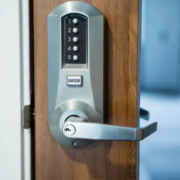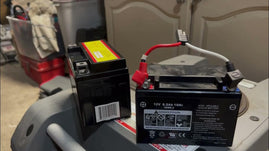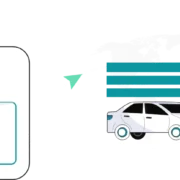
If you’re considering selling your old car to a junkyard or scrap yard, understanding how scrap car prices are determined can help you maximize the value of your vehicle. Scrap car prices fluctuate based on various factors, including the global demand for scrap metal, the weight and composition of your car, and the local market conditions. In this guide, we’ll delve into the key factors that influence scrap car prices, enabling you to make informed decisions and unlock the maximum value for your vehicle.
Factors Affecting Scrap Car Prices
- Scrap Metal Prices: Scrap car prices are primarily influenced by the prices of scrap metal, particularly steel and non-ferrous metals like aluminum, copper, and brass. These prices are determined by global supply and demand dynamics, economic conditions, and market trends. Research the current scrap metal prices in your region to get an idea of the market value.
- Weight of the Car: The weight of your car is a crucial factor in determining its scrap value. Heavier cars generally yield more scrap metal, which can translate to higher prices. The weight includes not only the body of the car but also any additional materials like engine blocks, transmissions, and other metal components.
- Metal Composition: The composition of your car’s metal also affects its value. Different metals have varying market prices. For example, aluminum and copper tend to have higher values compared to steel. If your car has a higher proportion of these valuable metals, it can increase its overall scrap value.
- Market Demand and Local Conditions: The demand for scrap metal, as well as the local market conditions, play a significant role in determining prices. Factors such as the number of competing scrap yards in your area, the availability of scrap metal processing facilities, and the demand for recycled materials can influence the prices offered by junkyards.
- Car Condition and Salvageable Parts: The condition of your car and the presence of salvageable parts can impact its value. If your car is in relatively good condition, some parts may be salvageable and have resale value. Salvageable parts like engines, transmissions, catalytic converters, and batteries can increase the overall value of your car.
Getting Quotes from Scrap Yards
To determine the specific scrap car prices you can expect, it’s advisable to obtain quotes from multiple scrap yards or junkyards. Here’s how you can go about it:
- Research Local Scrap Yards: Identify reputable scrap yards or junkyards in your area. Look for establishments that have positive reviews, good customer ratings, and a track record of fair dealings.
- Provide Accurate Information: Contact the scrap yards and provide accurate details about your car, including the make, model, year, condition, mileage, and any salvageable parts. The more information you provide, the more accurate the quotes are likely to be.
- Compare Quotes: Obtain quotes from multiple scrap yards and compare them. Pay attention not only to the price offered but also to any additional services they provide, such as free towing or removal of hazardous materials.
- Negotiate: If you receive multiple quotes, you may have room to negotiate the price. Consider using your research on current scrap metal prices as leverage during negotiations.
Additional Tips
Here are some additional tips to help you maximize the value of your old car:
- Remove Valuable Personal Items: Before selling your car, thoroughly check and remove any personal belongings. It’s easy to overlook items, so be meticulous in your search.
- Prepare Necessary Documentation: Gather all the necessary paperwork, including the title or proof of ownership, release of liability, and any other documents required by your local Department of Motor Vehicles (DMV). Having the paperwork in order will facilitate a smooth transaction.
- Consider Selling Salvageable Parts Separately: If your car has valuable salvageable parts, you may consider selling them separately rather than selling the entire car as scrap. This approach can potentially yield higher returns, especially if the parts are in high demand.
- Be Wary of Unscrupulous Buyers: While most scrap yards and junkyards are reputable, it’s essential to be cautious and deal with established and trustworthy buyers. Research their reputation, read reviews, and ensure they have the necessary licenses and permits.
Conclusion
Understanding the factors that influence scrap car prices and obtaining quotes from multiple scrap yards can help you unlock the maximum value of your old car. Factors such as scrap metal prices, weight and composition of the car, market demand, and the presence of salvageable parts all play a role in determining the price offered by junkyards. By conducting thorough research, being well-prepared, and dealing with reputable buyers, you can ensure a fair and profitable transaction when selling your old car for scrap.






















Comments